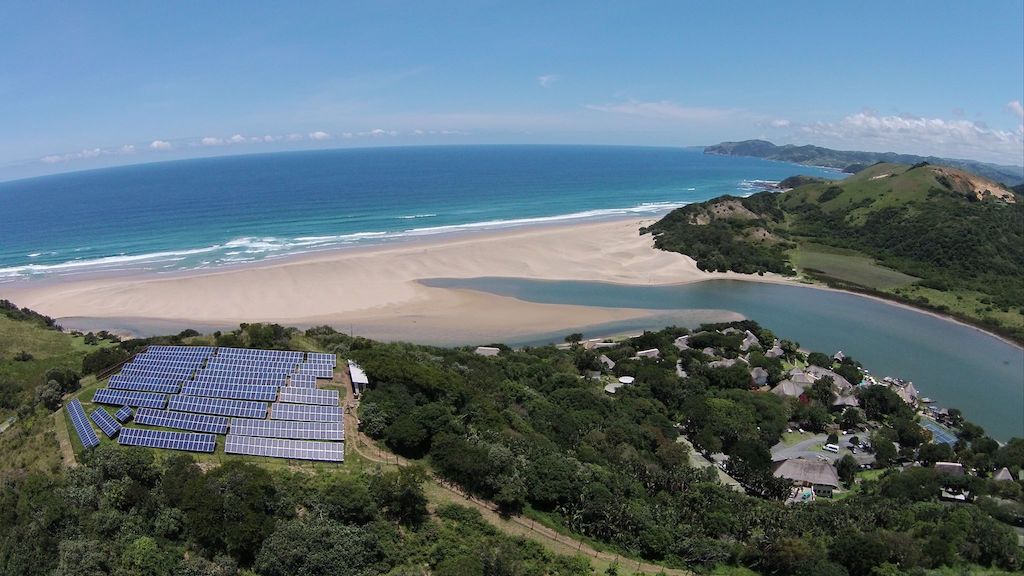
07 Nov Court case tackles not-so-proudly-South African solar power
In a landmark High Court challenge, government departments and independent power producers stand accused of flouting localisation laws meant to drive South Africa’s green industrial development. Thabo Molelekwa investigates

Court case: Durban’s ARTsolar is at the centre of a landmark High Court battle accusing government and power producers of flouting localisation laws meant to drive the country’s green industrial development. Photo courtesy ARTsolar
More than a decade ago, South Africa launched an ambitious plan to use renewable energy as a vehicle for industrialisation. The government’s Industrial Policy Action Plan and the Renewable Energy Independent Power Producer Procurement Programme (REIPPPP) were promoted as tools for creating green jobs, developing local industries and reducing dependence on energy imports.
According to the Department of Trade, Industry and Competition, (DTIC) local production of solar modules was supposed to “stimulate manufacturing, build technical capabilities, and support long-term economic transformation”.
Yet the promise has not materialised, according to a 2024 report on the state of South African solar PV manufacturing published by GIZ, which noted that although public procurement initially drove demand, “many local factories closed or are operating below full capacity”.
A policy brief published by research institution Trade & Industrial Policy Strategies in April 2024 warned that South Africa’s renewable energy value chain had “gone through a boom and a bust”, undermining localisation ambitions.
At the centre of this industrial decline stands ARTsolar, a Durban-based solar module manufacturer once celebrated as proof that South Africa could build a local renewable energy industry. The company has embarked on a legal challenge that is a litmus test for whether localisation is real policy or empty political rhetoric.
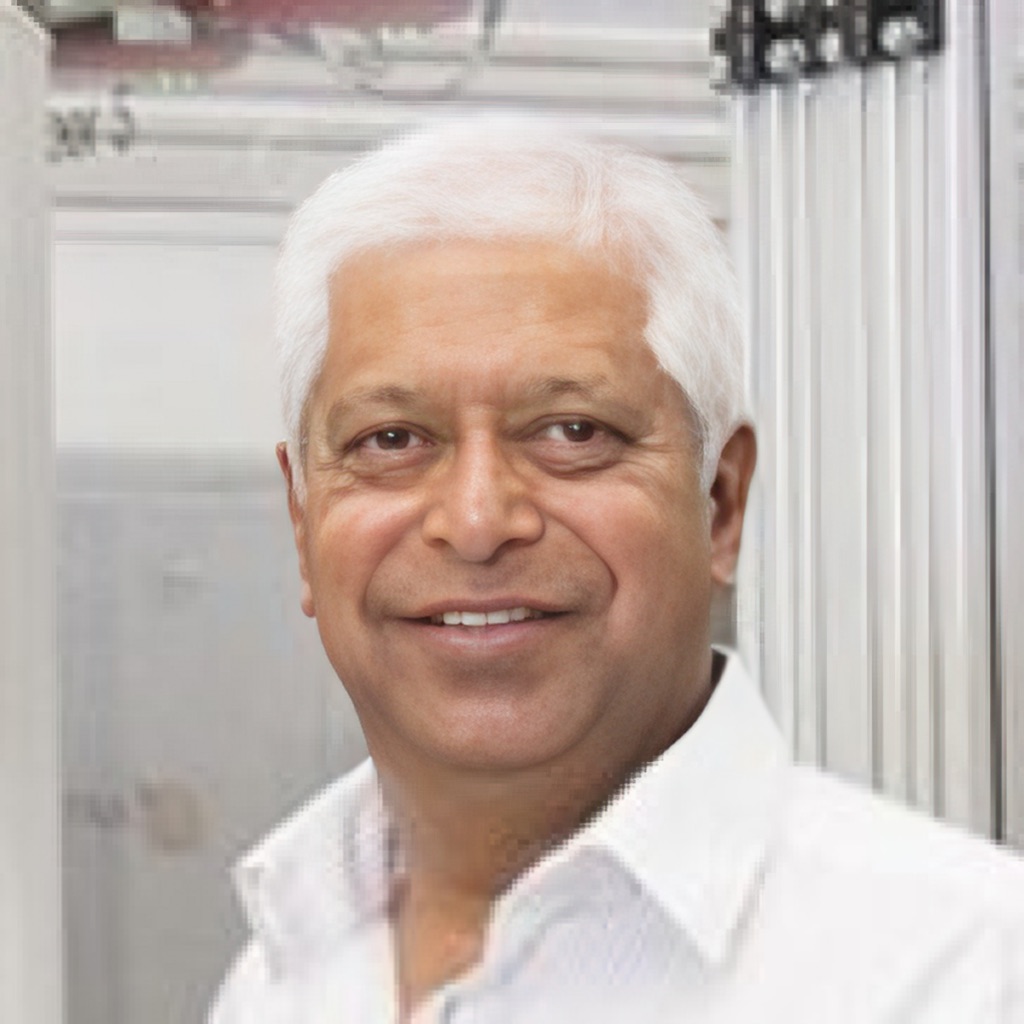
Framework failure: Eshu Seevnarayan, chairperson of ARTsolar, is leading the court battle, set down to be heard on November 28 2025. Photo courtesy ARTsolar
Collapse of localisation
In October 2024 ARTsolar filed an application in the North Gauteng High Court, naming 26 respondents in total – including government entities such as the DTIC and the Department of Mineral Resources and Energy (DMRE) – as well as 20 independent power producers (IPPs). Among these IPPs are major renewables developers such as Scatec, Engie, Electricite de France (EDF) Renewables, Mainstream and Enel, whom the company alleges were awarded projects despite failing to meet local-content requirements.
The application asks the court to compel these parties to prove they complied with a mandate from the National Treasury that set varying minimum thresholds of local content in solar modules used in government-backed renewable energy projects. If the respondents cannot prove compliance, ARTsolar is asking the court to declare their conduct administratively unlawful and to order corrective action – including enforcing compliance and directing the IPPs to source panels locally in line with their contractual obligations.
The company alleges that despite clear procurement regulations, the independent producers imported solar panels primarily from China and the government departments failed to enforce the rules. According to the company’s founding affidavit, ARTsolar wrote repeatedly to the DTIC and DMRE — including to the former director-general Lionel October — between 2019 and 2023, warning that imported panels were being used in state-approved projects without verification of local content. The company says it received no formal response.
“The government created the framework but then failed to enforce it,” said Eshu Seevnarayan, chairperson of ARTsolar, in an interview with Oxpeckers. “We were ready to supply the local market, but those projects went ahead using imports. That’s how localisation in South Africa collapsed.”
The case is set down to be heard on November 28 2025.
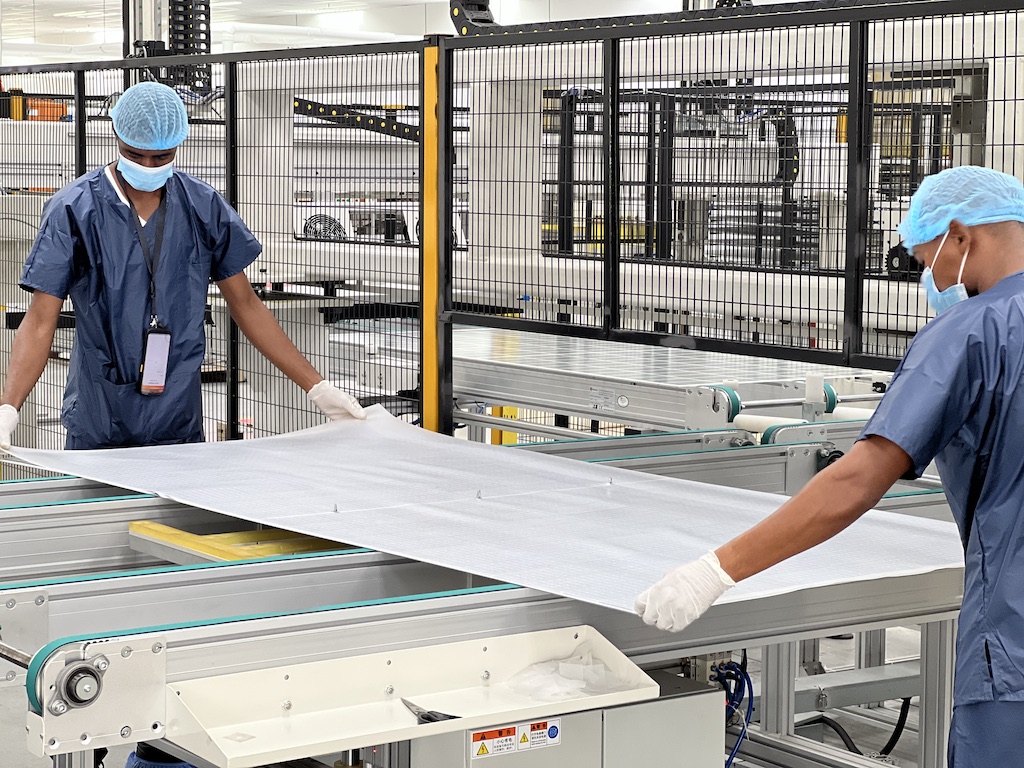
Ecosystem collapse: ARTsolar recalled how South Africa’s pause on renewable energy projects ‘froze the market overnight’, forcing the local solar manufacturer to retrench over 220 workers. Photo courtesy ARTsolar
Frozen market
Seevnarayan said ARTsolar was founded in 2010 in direct response to the government’s localisation drive.
“We started ARTsolar because Treasury had designated solar modules for local production under the localisation programme. That created an opportunity to establish a South African manufacturing base for this new renewable energy industry,” he told Oxpeckers.
The factory, located in Durban, was equipped with international production lines and established partnerships with global tier-one manufacturers including BYD, JA Solar and other Bloomberg-rated companies.
“We use the same machinery found in international factories, so our products meet global standards,” Seevnarayan said. “We’ve trained South Africans, we’ve invested in technology, and we can scale up production when the demand is there.”
The company was fully operational from 2010 until 2016, when the government stopped signing new renewable energy projects, according to Seevnarayan. Although tenders had been issued, no preferred bidders were announced for several years, effectively freezing the industry, he said.
“Government did not announce the winners and paused the projects due to various reasons,” he explained to Oxpeckers. “The winners were only announced years later on the IPP website, after which they were expected to reach financial close and begin construction. Some of those projects have since been completed and [REIPPPP] Bid Window 7 winners were only announced in December last year.”
“The whole renewable manufacturing ecosystem collapsed overnight. We had to retrench over 220 employees in 2016,” Seevnarayan recalled. “It was devastating because we had the skills and capacity, but no market.”
ARTsolar diversified operations in 2018, focusing on smaller private-sector installations and distribution of solar products. But the company’s hopes for large-scale manufacturing revival hinged on a major new investment facilitated by the Industrial Development Corporation (IDC).
That investment is central to the company’s current High Court application.
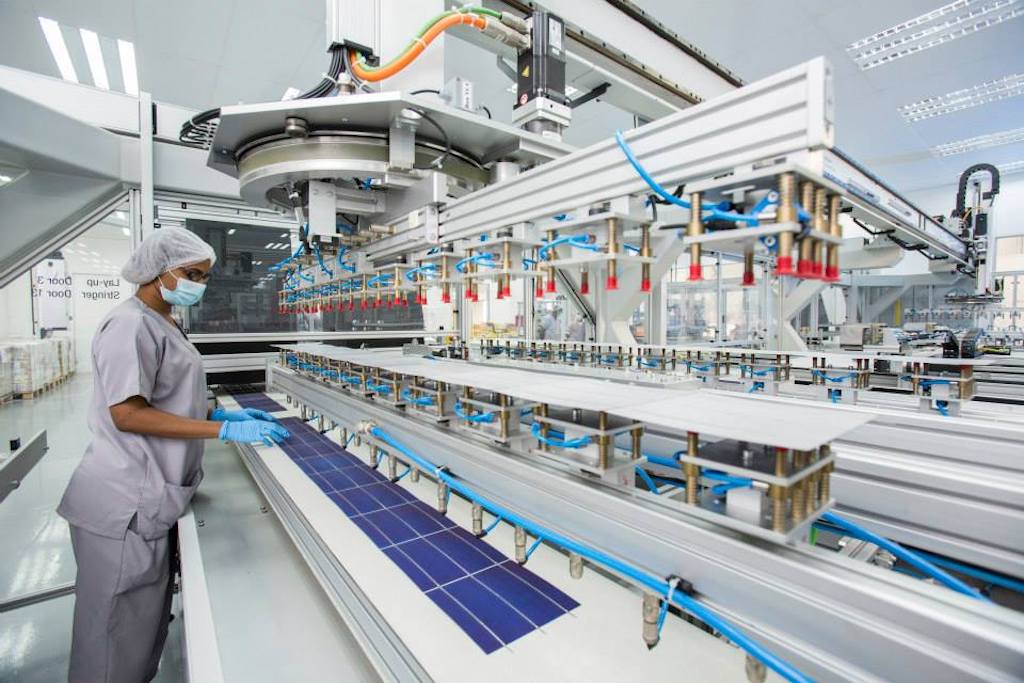
Multi-million investment: A worker assembles a solar panel at ARTsolar’s new factory in Durban, a facility built with IDC funding to boost local production, now standing idle amid allegations that power producers ignored localisation rules and imported panels instead. Photo courtesy ARTsolar
New production line
In 2022 the IDC committed R96.8-million to ARTsolar to procure a new production line and expand manufacturing capacity. The funding followed a four-month due diligence process, and the new facility was officially launched that year with DTIC officials in attendance.
According to Seevnarayan, the business case was straightforward: major renewable energy projects under the government’s Risk Mitigation Programme and REIPPPP Bid Window 5 were in the pipeline, and these projects would be bound by Treasury’s localisation designation. ARTsolar positioned itself to supply locally manufactured modules for these projects, particularly Scatec’s 189MW Risk Mitigation Programme order — one of the largest solar projects in the country at the time.
“We complied with the government’s localisation policy and invested millions with IDC’s backing, expecting projects to follow. Instead, the IPPs imported panels and the market ignored the rules,” Seevnarayan told Oxpeckers.
The company claims that Scatec and other IPPs proceeded with imports, leaving ARTsolar with expanded manufacturing capacity, significant debt to the IDC, and no major contracts.
“If even one of those major risk mitigation or bid window projects had used local panels, we would have been able to repay the IDC facility in full by now. Instead, we were left with a factory, debt and no projects,” Seevnarayan said.
Oxpeckers did not send direct questions to Scatec and other IPPs named in the case. In their affidavits filed in response to the court case in May 2025, the companies described ARTsolar’s allegations as “misguided” and “commercially motivated”, insisting that all procurement and equipment sourcing complied with the DMRE’s regulations and National Treasury’s designation framework.
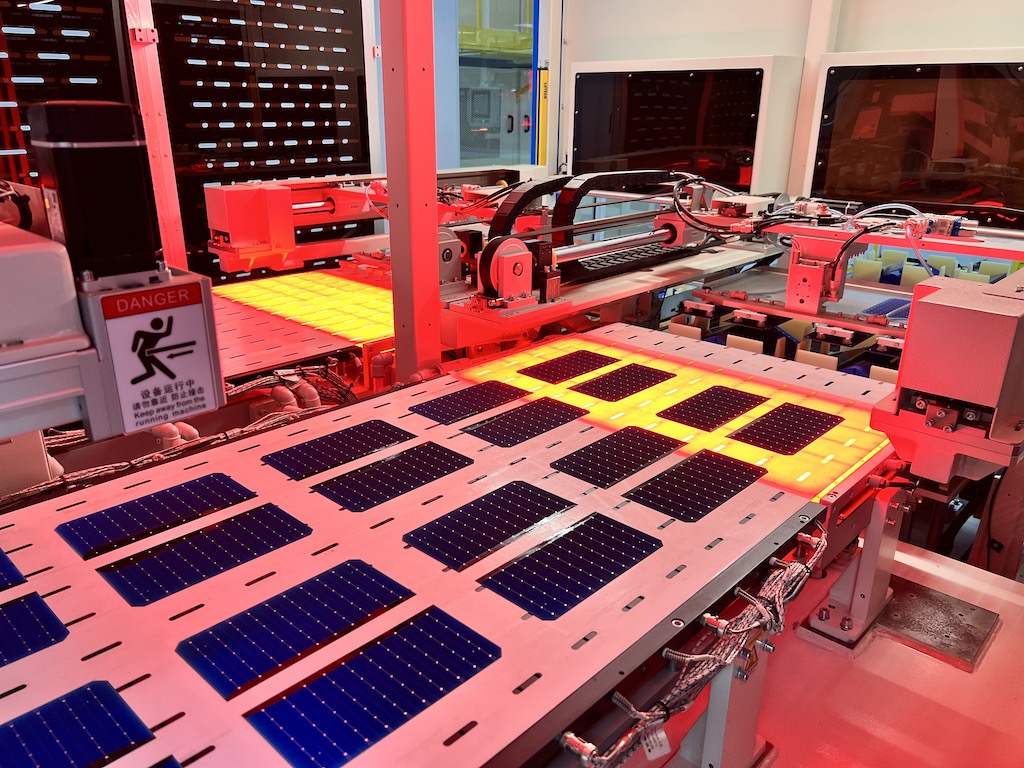
Systematic bypassing: According to ARTsolar, the majority of of all solar panels installed in public renewable energy projects were imported, despite regulations. Photo courtesy ARTsolar
A symbolic gesture
According to calculations presented in ARTsolar’s court papers, out of approximately 2GW of solar capacity installed under projects subject to Treasury’s localisation designation, only 71MW — representing just 3.5% — used locally manufactured modules supplied by ARTsolar.
This means, ARTsolar alleges, that around 96% of all solar panels installed in public renewable energy projects between 2019 and 2023 were imported, even though Treasury’s Designation Instruction No. 2 of 2016/17, which set a 35% local-content requirement, remained in force throughout that period.
ARTsolar claims this systematic bypassing of localisation rules resulted in devastating consequences for the local production industry. The company says it had to terminate more than 300 workers in July 2025 as projects it had anticipated failed to materialise. Dozens of local suppliers who depended on the renewable energy value chain also collapsed.
ARTsolar argues that these losses extend well beyond a single factory. The collapse of local manufacturing, it says, has erased years of skills development and technical investment, with ripple effects on component suppliers, training institutions and downstream installers. The company claims this is evidence that, without enforcement, South Africa’s localisation policy risks becoming a symbolic gesture rather than a tool for real economic transformation.
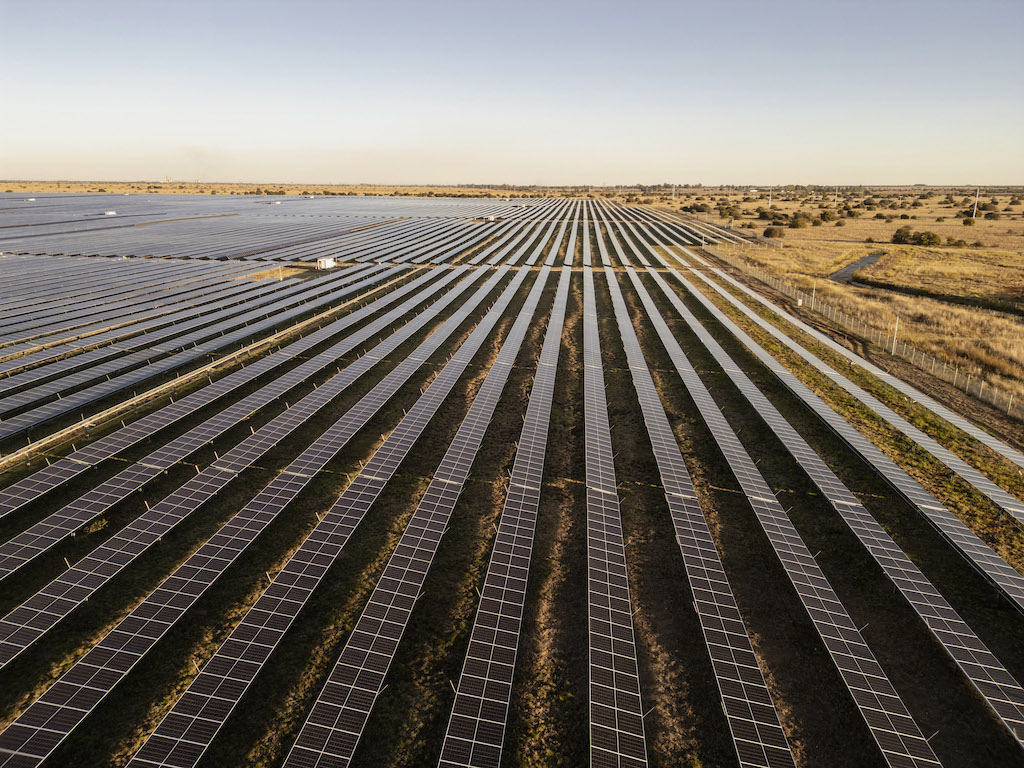
Homegrown: Rows of solar panels reflect the sun, a stark image of what ARTsolar calls South Africa’s ‘failed’ localisation framework. Photo: Ihsaan Haffejee
Failed framework
In its founding affidavit, ARTsolar argues that South Africa’s localisation framework has “failed in practice” because government departments responsible for enforcing it — including the DTIC and the DMRE — “neglected their obligations” to ensure compliance.
It describes a fragmented system in which responsibility is split among several state entities, creating what the company calls a “failure of enforcement” that has allowed imported panels to dominate public energy projects.
DTIC and National Treasury circulars show that local-content thresholds for solar modules have been revised several times since 2016.
In the affidavit, Seevnarayan said ARTsolar engaged extensively with government departments from 2019 onwards, attending meetings with DTIC director-generals and submitting proposals, quotations and compliance documents as requested.
“They told us to be ready because projects would soon move forward. But once those projects reached execution stage, they completely went silent. No one from DTI, DMRE or the IPP Office has been to our site since the launch in 2022, and we have not received any feedback on our localisation proposals since then,” he told Oxpeckers.
The company also faced a seven-year wait for trade protection. ARTsolar applied to the International Trade Administration Commission (ITAC) in 2017 for import duty rebates to shield the local industry from cheap imports flooding the market.
“It took ITAC seven years to process that application — the import duty was only approved in 2024, with a concurrent rebate system that nullified the effect of the duty. By then the entire market was already importing from China, so the local industry was finished,” Seevnarayan told Oxpeckers. “The IPPs import because they make a higher margin that way, even though that is directly against the localisation and Treasury’s designation rules. The government allowed that to happen.”
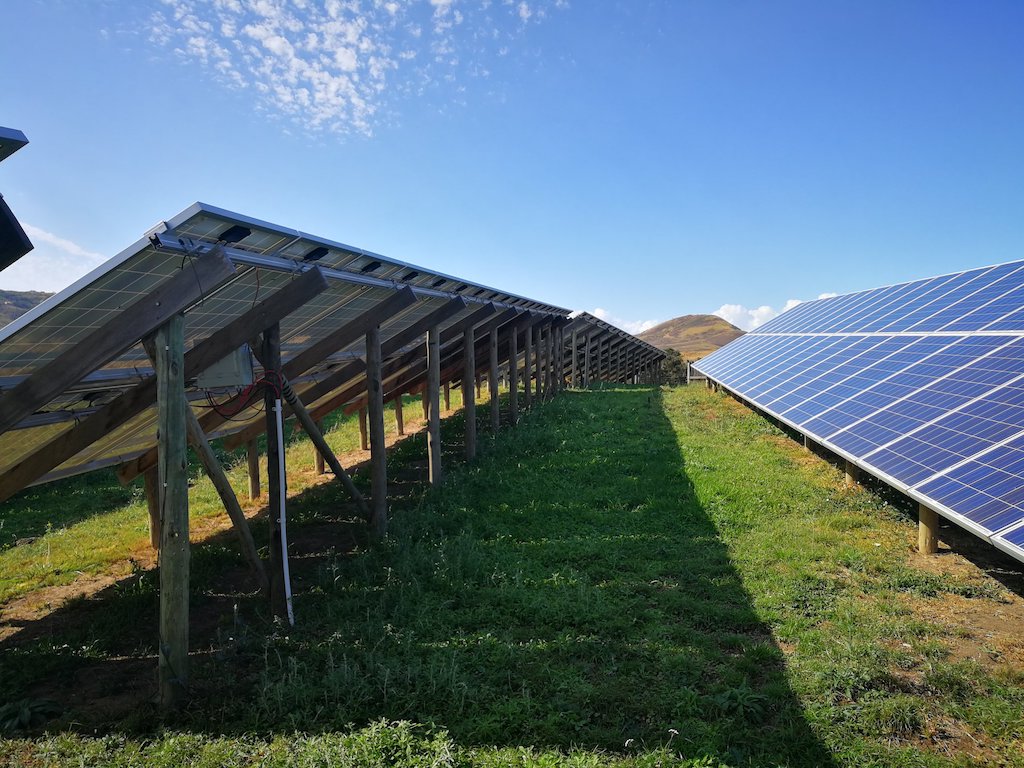
‘False and malicious’: The company rejects allegations against its own compliance with localisation requirements, with Seevnarayan putting them down to a commercial dispute instead of genuine whistleblowing. Photo courtesy ARTsolar
Commercial dispute
In response to allegations made earlier this year questioning ARTsolar’s own compliance with localisation requirements and its use of the IDC funding, the IDC launched an investigation. The company says it has accommodated all IDC, DTIC and auditor-general audits, and that the results proved no misuse of funds or misleading conduct. However, the IDC has not publicly released findings from its investigation.
The allegations against ARTsolar stemmed from claims made by a disgruntled customer and former employees, who accused the company of importing finished solar panels and reselling them as locally manufactured modules, and of failing to meet the localisation conditions attached to its R96.8-million IDC facility. These claims were first reported by GroundUp and were referenced in correspondence between the IDC and the DTIC.
In his interview with Oxpeckers, Seevnarayan rejected the allegations as “false and malicious”, saying they arose from a commercial dispute instead of genuine whistleblowing. He said the company had accommodated audits by the IDC and DTIC, which “proved no misuse of funds or misleading conduct”.
The company maintains that for utility-scale projects intended for public procurement, it manufactures locally, using imported solar cells, glass and frames that are then processed through lamination, framing, testing and quality control at its Durban facility. For private projects it uses imported modules that undergo local testing and hold local guarantees – a model that it says is standard practice in the global solar manufacturing industry.
“People like to say we only assemble, but that’s not accurate. We are a manufacturer, assembler and distributor,” Seevnarayan explained to Oxpeckers. “For large-scale utility projects, we manufacture locally using imported cells, glass and frames. Those raw materials are processed here through our lamination, framing and testing processes.”
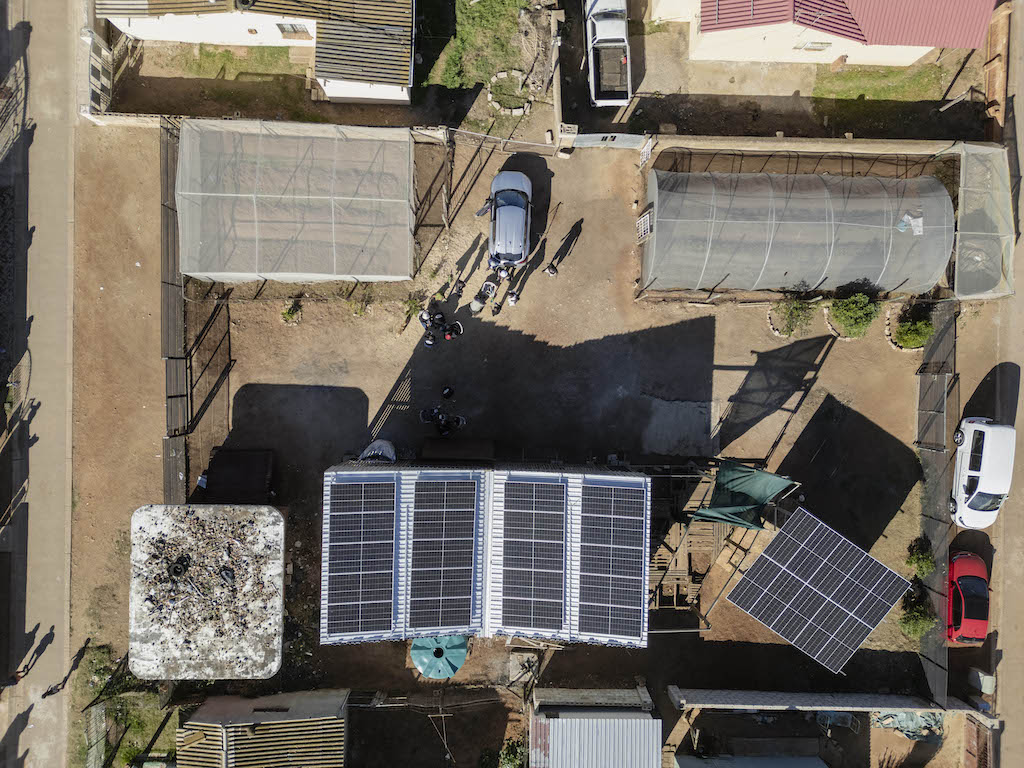
Several IPPs named in the case have described it as ‘an abuse of court process’. Photo: Ihsaan Haffejee
Government responses
The DTIC, in an answering affidavit filed in May 2025, denied that any exemptions were ever granted to IPPs from the 35% local-content requirement. The department said ARTsolar had “misconstrued the designation framework” and insisted all procurement decisions complied with National Treasury rules.
The DMRE also rejected ARTsolar’s assertions, arguing that the company’s court application was “misdirected” and not competent for judicial review.
Several IPPs named in the case – including Ngonyama Solar RF (Pty) Ltd and its associate, ib Vogt SA (Pty) Ltd – filed founding and answering affidavits on May 14 2025, describing the case as “an abuse of court process”. Ngonyama’s director, Mercia Grimbeek, said ARTsolar had repeatedly failed to meet project specifications, delivery schedules and due-diligence requirements.
She argued that there was “no evidence of any exemption decision by either the DTIC or the DMRE” and that ARTsolar’s complaints amounted to “a commercial grievance, not a matter of administrative law”.
UPDATE: In a significant procedural victory for the local solar energy industry, the High Court in Pretoria ordered the Department of Mineral Resources and Energy (DMRE) to hand over the full record of decisions regarding local content exemptions. Acting Justice Mullins ruled on December 9 2025 that the department must deliver a complete index of all documents related to the RMIPPPP and REIPPPP Bid Windows 5 and 6 by January 30 2026. While the DMRE and several independent power producers argued that ARTsolar lacked the legal standing to bring the application, the court dismissed these challenges as irrelevant at this stage, affirming that the right to access the record is “automatic” in order to ensure “equality of arms” between the person challenging a decision and the decision-maker.
To protect trade secrets, the court established a strict confidentiality regime where sensitive documents – referred to as “Part B” – will be accessible only to legal teams and independent experts. Crucially, Justice Mullins rejected attempts by several power producers to block ARTsolar’s use of an independent expert, noting that lawyers alone might not be able to identify technical non-compliance within the complex solar PV modules sector.
• Find the court documents in our Get the Data section here
